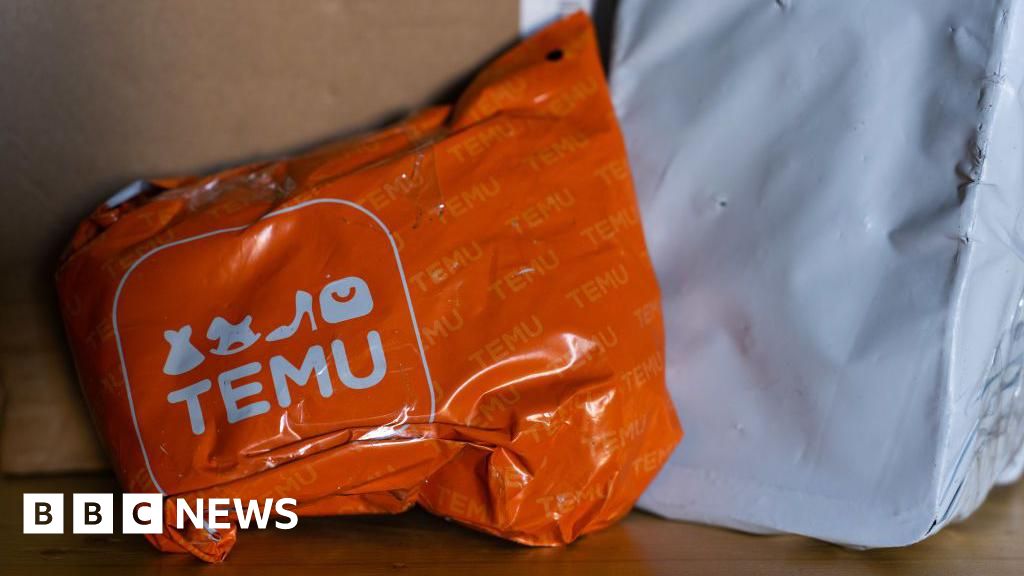
Temu to stop selling goods from China directly to US customers
The online marketplace says it will move to a "local fulfillment model" in the US, with sales handled by locally based sellers.
https://www.cnbc.com/2025/05/02/tem...om-china-as-de-minimis-tariff-rule-ends-.html
Temu Stops China Shipments to U.S. Consumers
Summarize
Chinese bargain site dramatically shifts its business model as tariff exemption ends
Shen LuMay 2, 2025 at 12:22 pm
Ahead of the end of the so-called de minimis exemption for China-made goods on Friday, Boston-based Temu, owned by Chinese e-commerce giant PDD Holdings PDD 5.23%, initially announced that it would raise prices starting last week. It also started breaking out import charges on each individual purchase that often far exceeded the price of the items.
In recent days, its website shifted to labeling everything as “local,” meaning items that had already been imported to the U.S. in bulk and are sitting in U.S. warehouses. Those items are typically more expensive than products that came under the de minimis provision and were shipped directly to consumers.
On Friday, Temu confirmed it is no longer shipping goods from China to U.S. consumers. “This shift is part of Temu’s ongoing adjustments to improve service levels,” a Temu spokesperson said in a statement.
Use of de minimis has ballooned in recent years with a flood of goods from Temu and its China-founded rival Shein. About 1.36 billion shipments using the provision entered the U.S. in fiscal year 2024, up from 637 million four years earlier, according to U.S. Customs and Border Protection. In April, President Trump ordered an end to the exemption for goods made in China and Hong Kong by May 2.

De Minimis Ballooned This Chinese Market’s Exports - Now That’s Changing
President Trump moved to close a loophole that has fueled a boom in cheap goods being shipped from China to the U.S. WSJ’s Jonathan Cheng traveled to the world’s largest wholesale market to see how these products are making their way into U.S. markets. Photo: CCTV+
The elimination of the exemption for China imports also means a heavier documentation burden at customs for e-commerce companies that could be disruptive to businesses.
Temu had prepared for the end of de minimis. A year ago, it started recruiting U.S.-based sellers who were importing their own inventory from China, competing directly with Amazon.com and Walmart. Temu’s representatives told sellers they could benefit from joining what Temu calls the “local-to-local” programs. More than 30% of its sales were handled by the U.S.-based sellers, The Wall Street Journal has reported.
Temu’s products were 20% to 30% cheaper than U.S. competitors like Amazon. The bargain site is losing much of its price advantage with the full shift to local fulfillment. And it is unclear how long supplies already in the U.S. will last.
“They removed the scary import charge shock, but now there is less stuff to buy, most of the bestsellers were from China,” said Juozas Kaziukenas, an independent e-commerce analyst.
The bestsellers on Temu now are mostly bulky furniture and household appliances, replacing the ultracheap smaller items Temu is known for, such as hairpins and charging cables.
In the short term, Temu is likely to unload the inventory in China intended for the U.S. market to other countries, which threatens to cut into their already razor thin margin, said Martin Balaam, chief executive of Pimberly, an AI-powered product platform for e-commerce.
In the medium term, Temu, like other businesses that rely heavily on manufacturing in China, faces business uncertainty while hoping for policy reversals. If no such reversals come, Temu will have to adjust its business model and manufacturing capacity. “But it will set them back,” Balaam said.
Write to Shen Lu at


 , this is that Shanghai special.
, this is that Shanghai special.